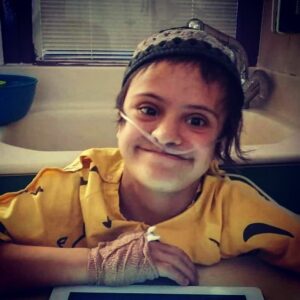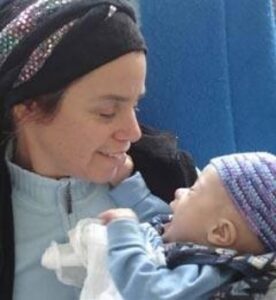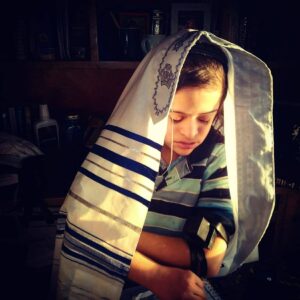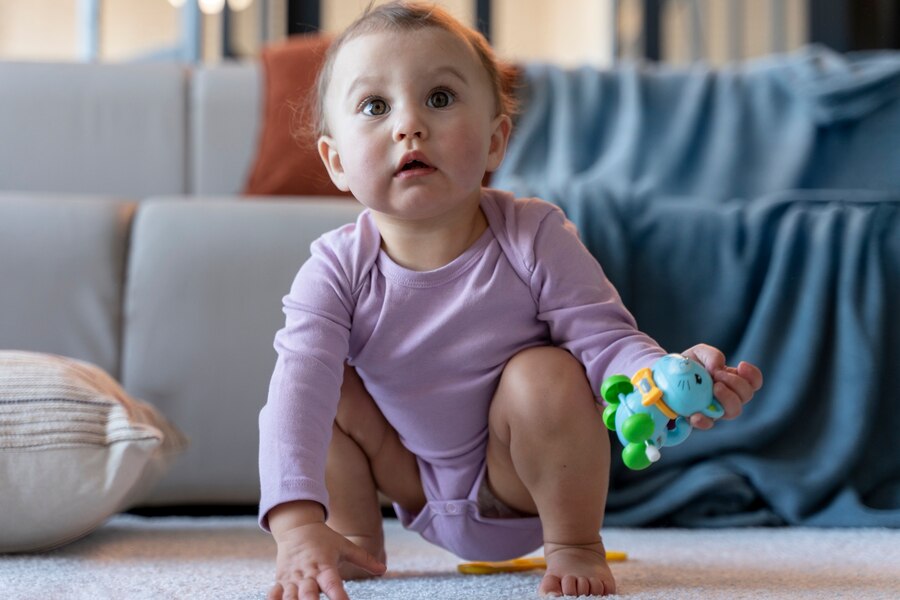Down Syndrome Awareness Month: Losing a Child
by Chaya Ben-Baruch, co-founder, Neshikha


Ori Ben-Baruch z”l (RIP)
The death of one of your own children is uniquely shattering; it makes a mockery of the natural order of life. In Hebrew, we have a specific word for the grief of losing a child or family member: “shakul,” which appears in Gen. 46:29 when the Patriarch Jacob is told that his son Josef has died. Other languages have similar terms: Sanskrit calls a parent whose child has died “against the natural order,” “vilomah.” In Arabic, “thakla” is a specific term for a parent who has lost a child.
In Judaism, we have three distinct mourning periods in the first year after a child, spouse, or parent has passed, termed “avelute.” The first week, when the mourner sits shiva (for seven days, from the word “seven”): visitors come to the mourner’s home, but do not greet the mourner at the “shiva call,” but rather wait until the mourner speaks first.
The first three days of the week after burial are often referred to as the “days of tears.” Then, 30 days after burial, there is “shloshim” (“thirty”) at which point some of the mourning restrictions are lifted. Finally, 11 months later, the mourner is no longer considered in “avil” and life continues… or does it?
It’s uncomfortable to comfort a parent who has lost a child. We would rather they don’t cry in front of us after the week of shiva and leave their emotional outburst to the privacy of their moments of solitude. We expect that, sooner or later, they’ll “get over it,” to traverse the internal terrain of Elizabeth Kubler Ross’s five stages of grief and return to their former, more familiar, and – for those on both sides of the equation – more comfortable identity and role.
Rita Moran, who lost her daughter in a car accident, however, implores the visitor:
Please, don’t ask me if I’m over it yet.
I’ll never be over it.
Please don’t tell me she is in a better place.
She isn’t with me.
Please don’t say at least she isn’t suffering.
I have not come to terms with why she had to suffer at all.
Please, don’t tell me how I feel.
Unless you have lost a child.
Please, don’t ask me if I feel better.
Bereavement isn’t a condition that clears up.
Please, don’t tell me God never gives us more than we can bear.
Please, just let me talk about my child.
Please, mention my child’s name.
Please, just let me cry.


Ori Ben-Baruch z”l (RIP)
In geometry, the shortest distance between two points is a straight line. In grief, however, the shortest distance between two points may be quixotic, roundabout, and jagged: one day you are fine and “behave” really well, and then, suddenly, someone passes by with a child doing something that reminds you of your child, or even just something that touches your fragile heart – and the tears start flowing.
Life experiences, as recent medical research has confirmed, can, literally, change us down to the cellular level. When I gave over my three-month-old biological son who experiences Down’s Syndrome to the nurses to undergo open-heart surgery decades ago, I had a literal physical reaction: my heart raced and I couldn’t breathe – symptoms of what we might today consider a panic attack.
Sixteen years later when my 11-month-old adopted son, Ori (“My light” in Hebrew), who also experienced Downs, was given over to a different set of nurses for open-heart surgery, I thought, ‘I have been here before, he is not my biological son, I am not going to panic.’ I was wrong: every cell in my body reacted as if we were biologically connected.
Heart trumps head; my brain knew we were not biologically connected, but my heart knew better.
Ori, at age fifteen, after battling lung and respiratory issues, died. I loved him more than the oceans are wide and deep and have cried almost that much the year after his passing. I searched for help to get through the grieving.
My cell memories had to adjust to life without Ori. When someone experiences catastrophic loss, the brain develops new neuronal connections – new patterns of life, without the missing loved one.
His heart had stopped, but mine did not.
I was not angry at God, I was not in denial. I just missed him and needed to redefine myself. I used to know why I got up every morning: Ori needed me, I needed him. They say we need at least three hugs a day to be mentally healthy. Before he would get to school in the morning we would have gotten and given a dozen kisses and hugs, minimum, to one another.
Where do you put all that love when he is gone? People advised me that either when I die he will be there to greet me, or when our bodies are resurrected he will be too, or we will meet up in the next lifetime. Someone even wanted to guilt me into thinking that if I am sad it will negatively affect his soul – but they surely did not understand my pain.
I can’t always put on a happy face, and cry in my shower or at night when no one is around to hear my sniffling. Grief is a journey and everyone travels that path differently. Grief is hidden; I can smile and laugh but it sits under the surface.
Cry whenever you need to
Scream. Shout. Lay on the floor,
Sob in the shower. Be still. Run Walk Create.
Lie your truth. Share without fear.
Listen. Release your pain. Breathe.
Be courageous. Throw away the map.
Wander. Be real. Be compassionate.
Read. Seek Friendship. Be vulnerable.
Don’t fear being broken.


Ori Ben-Baruch z”l (RIP), as he donned a prayer shawl and “tefillin” straps on his arm and forehead, at age 13, representing the age at which a Jewish young man takes upon himself adult religious and spiritual responsibilities, according to ancient Jewish tradition.
I did not believe it, but, indeed, time does help. My pain is not as debilitating as it once was; I can now smile more. I want to hurt less and remember the good times more. The best help from friends has been when they let me be how I needed to be; when they sat with me and just… listened. They didn’t try to change me and let me work my way through my grief. They said my son’s name and let me say his name out loud, even if my eyes got teary. Grief needs a community. My friends held space for my grief.
Michele Pearson Clarke, in her TED talk, “Rethinking How We Hold Space For Grief and Loss” reminds us of Tahlequah, an Orca killer whale female, who carried her dead calf over 1000 miles during her pod’s migration in the Pacific over a seventeen-day period. Her community fed and took care of her along the way.
The strongest person in the world is a grieving mother that wakes up and keeps going every day.
While I searched for help, I prayed that one day I would share my story on how I went beyond grieving and, perhaps, become someone else’s survival guide. I did not realize how deeply I loved our son until he was gone. It may be obvious but it needs to be stated:
Ori was on a respirator for the last three and a half weeks of his life. When I did not feel he was there anymore, I whispered in his ear that if he needed to go I was OK with it. We are taught to choose life. I was not advocating for him to die. We had been in similar spots before and I had hoped that he would beat the odds, but I did not want him to be holding on because of me.
My quirky way of coping has been to write a gratitude journal and write down ten things a day I am grateful for.
I constantly remind myself that my son existed. I wake up in the morning and remember the first thing I used to, then, do was touch him before even seeing to basic personal needs. I look at his picture. The more time passes it’s like my body gets used to doing the motions without him.
In the in-between times of my day, trying to live, I keep trying to connect with him, to continue our relationship. I make deals with God about seeing him and being with him in the next lifetime.
I used to think about him during the day because I was responsible for him, my body would know when I had to pick him up at the bus stop. I always knew where to find ketchup, tuna in water, and hummus in every grocery store in town, because those were his favorite foods. It took me nine months after his death before I bought a can of tuna again.
I welcome death, and I am not afraid of dying. Before, however, I could not die because I had to take care of him and could not imagine that anyone could love him as I did.
I window shop for my son now. I go into a store and look at what new t-shirt he might like that I would have bought for him; I have saved lots of money. I know some moms go into bookstores just to check out the latest book in a series they had been reading to their child before they died.
When you lose a child you turn into a pariah. You have trekked through the unimaginable. All parents fear what you have had to go through. Decide you will survive. But the decision can take time.
Immerse yourself in the things that help you move forward. Put your hand on your heart. Is it still ticking? You are not done yet.
The love between a bereaved parent and his child is a life force that does not end in death. My love did not end when my child physically stopped being here. All the love I gave him did not disappear. The quality and quantity of love we experienced was such that it opened up a place in my heart that no one else ever had.
I recognize how to love more deeply now because I really appreciate those I love. Nothing is taken for granted anymore. The loss of anyone close to you – hopefully – triggers a spiritual journey. I have changed and I am slowly relearning what God wants from me. And, so, I continue to carry Ori with me. A part of who I am is a direct result of my experience with Ori, including my journey of grief, longing, and healing.
Hypothetically, I think if God asked me before I came into this lifetime if I would take on a Down Syndrome child, but it was only for fifteen years, would I?
I am sure I would have said yes, yet never imagining what that would do to my heart.











